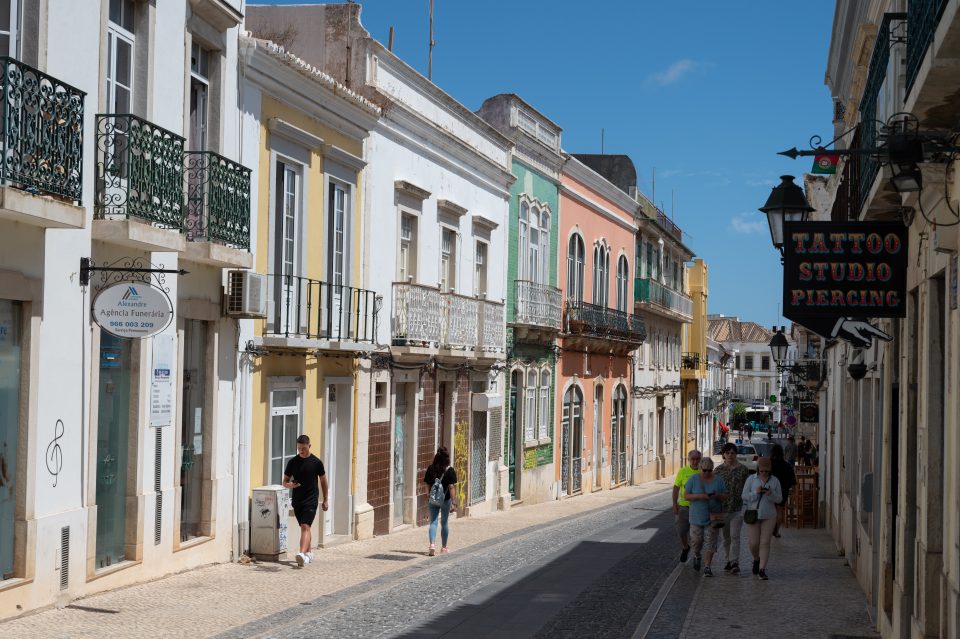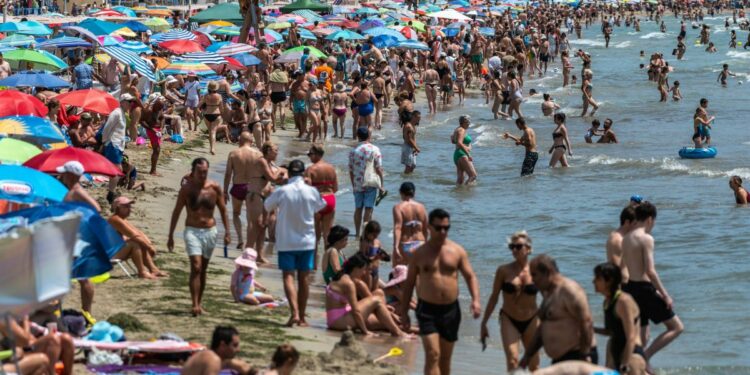Stefano Mazzola—Getty Images
The impact goes beyond just social factors. Parts of Europe, such as Sicily and Barcelona, have been facing water shortages amid rising temperatures, forcing them to curb visitor numbers or ration water usage. Mass tourism can also result in environmental deterioration through more waste and pollution. Amsterdam plans to ban cruises in the next few years as they drive up emissions in the city.
Unfortunately, as tourists typically make pit stops at different destinations for a few days at best, they aren’t fully aware of the impact they’re having.
“Many visitors arrive in their destinations on a package holiday or cruise. They’re somewhat insulated from the places they’re visiting and in general I’d say awareness [of their impact] is low,” Simon Lynch, the global sales and product director at tour operator Scott Dunn, told Fortune.
But it’s starting to weigh on their decisions as they consider off-season travel more or opt for off-beat locations.
To be sure, tourism has immense benefits in areas such as job creation and infrastructural improvements. In the Portuguese town of Porto, the local authorities see a trend of repeat tourists as a way to regenerate the city and revive it to new glory.
It comes down to promoting a more measured form of tourism that puts residents and the city first while still encouraging visitors.
Changing gears
Cities have started acting against mass tourism in various ways, such as banning cruises and capping crowds at popular sites. Barcelona announced a short-term rental ban in 2028 to stem its housing crisis. Venice, Athens, and Amsterdam have also grappled with overtourism and tried to counter it by introducing entry fees for attractions and capping new hotel constructions.
Bruges’s “hotel stop” model limits where hotels are constructed to promote livability in the city and its outskirts.
Spreading tourists out in different parts of a city or country can mean a more enjoyable experience for all, Ribeira said. Government policies should aim to create benefits that can translate to an “increase in the quality of life and well-being of the people who live in the destinations,” he added.

John Keeble—Getty Images
Elsewhere in Europe, authorities are trying to make tourism a positive force by encouraging visitors to help with the city’s clean-up in exchange for free access to attractions.
Scott Dunn’s Lynch pointed out that authorities should stop promoting the “Instagram hot spots” that create more chaotic city centers. London’s 90-day cap on short-term rentals in a year aims to balance tourism demand with long-term rental needs. Involving local communities in policy decisions could also help cities find a more sustainable way to manage the influx of visitors during peak seasons.
“Ultimately, it’s about creating a high-quality experience for visitors and maintaining a high-quality environment for residents,” Lynch said. “Deterring tourists isn’t the answer.”
Recommended Newsletter:
CEO Daily provides key context for the news leaders need to know from across the world of business. Every weekday morning, more than 125,000 readers trust CEO Daily for insights about–and from inside–the C-suite. Subscribe Now.
Source link : https://fortune.com/europe/2024/07/20/affordable-travel-europe-overtourism-social-environment-cities-barcelona-amsterdam-athens-airports-tiktok-trends/
Author :
Publish date : 2024-07-20 05:00:00
Copyright for syndicated content belongs to the linked Source.



